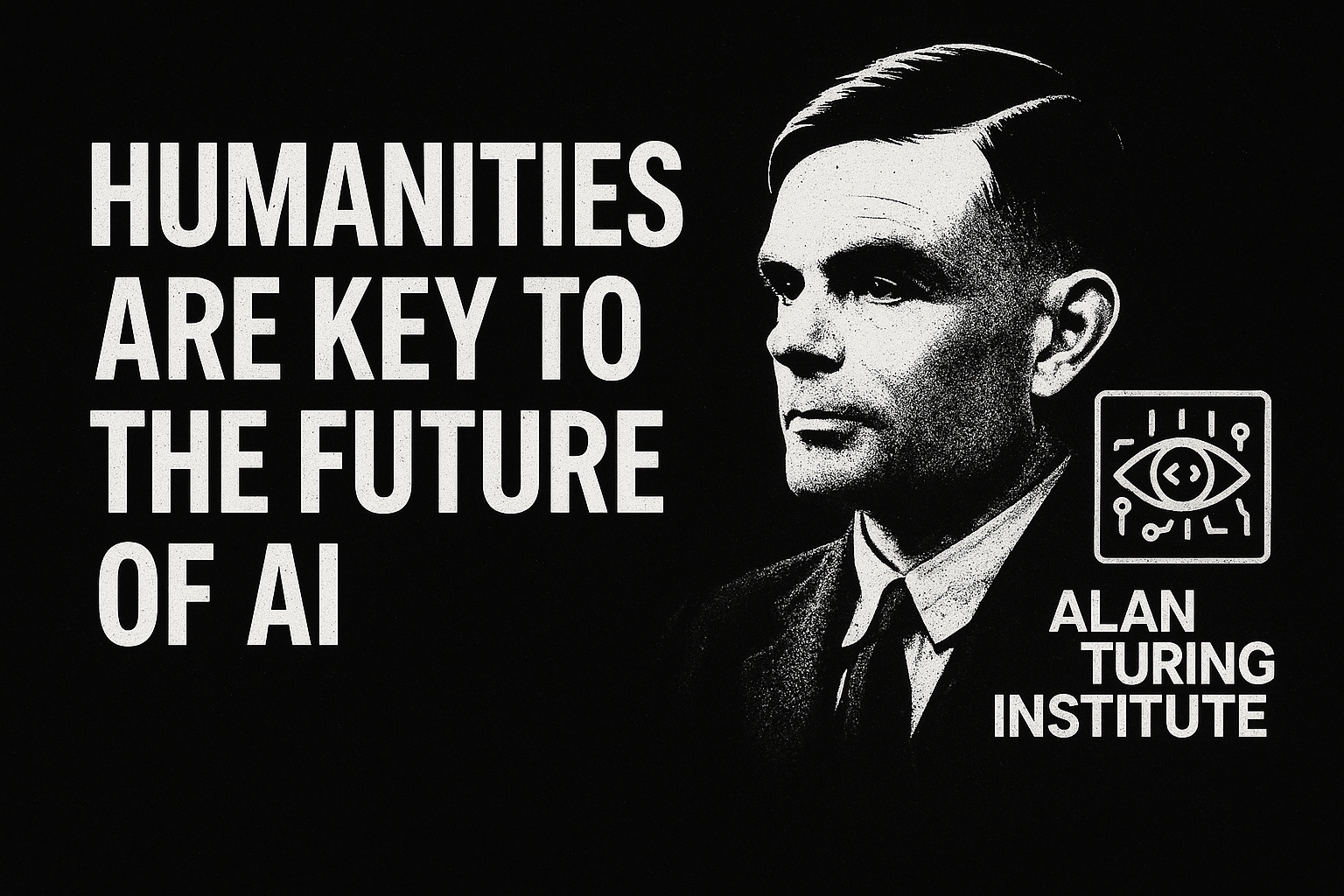When you think of the future of Artificial Intelligence, you probably imagine rows of GPUs, deep neural networks, and teams of mathematicians crunching models in high-security labs.
What you might not imagine is a historian, a linguist, or a philosopher sitting at the same table but the Alan Turing Institute says that’s exactly what we need.
From Codebreakers to Culturebreakers
The Alan Turing Institute, named after the legendary codebreaker, isn’t just building faster algorithms. It’s looking at the human side of AI how ethics, culture, and social behavior shape what we build, and how we use it.
And here’s the big idea: AI without humanities is like code without context.
You can build it. You can run it. But you won’t know if it’s making the world better or worse.
Why the Humanities Matter for AI
We’ve all seen AI hype from deepfakes to large language models but the question is shifting from “Can we do this?” to “Should we?”.
This is where the humanities come in.
- Ethics help define what responsible AI looks like
- History warns us about repeating the same mistakes at machine speed
- Linguistics improves how AI understands and communicates with humans
- Philosophy asks the uncomfortable questions that engineers often skip
In other words, the humanities don’t slow AI down they make sure it’s heading in the right direction.
Alan Turing Institute’s Interdisciplinary Vision
The Institute is building bridges between data scientists and social scientists.
That means AI research teams are now including experts in history, anthropology, psychology, and even literature.
Why? Because designing a fraud detection algorithm isn’t just about accuracy it’s also about understanding human behavior.
And building AI to detect misinformation isn’t just a technical challenge it’s a cultural one.
AI Needs Storytellers, Not Just Coders
Here’s the overlooked truth: AI is only as good as the people who use it.
If we don’t consider cultural bias, power dynamics, and the narratives AI reinforces, we risk creating systems that look “objective” but quietly reflect the worst parts of society.
The Alan Turing Institute is making sure that doesn’t happen and it’s doing it by putting historians and ethicists in the same room as machine learning engineers.
Why This Matters for the Next Decade
Over the next 10 years, AI will stop being “new tech” and start becoming infrastructure embedded into education, healthcare, finance, and governance.
Without the humanities:
- Bias will be baked in
- Cultural understanding will be lost
- Trust in AI will collapse
With the humanities:
- AI becomes more fair, inclusive, and resilient
- Tech decisions are grounded in societal impact
- Innovation doesn’t just move fast it moves smart
Final Thought
The Alan Turing Institute is reminding the world that the future of AI isn’t just about speed, power, or complexity. It’s about humanity.
And maybe that’s the lesson we’ve been missing:
The best way to prepare AI for the future… is to make sure it understands the past.
